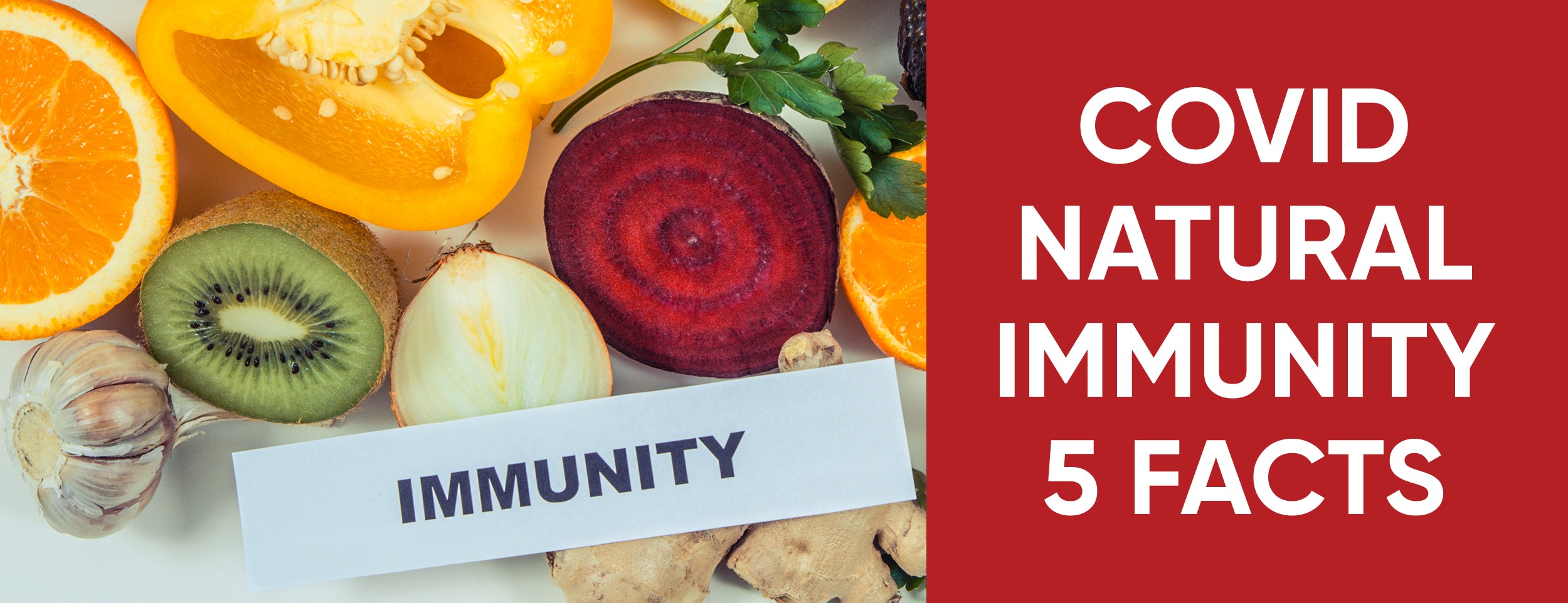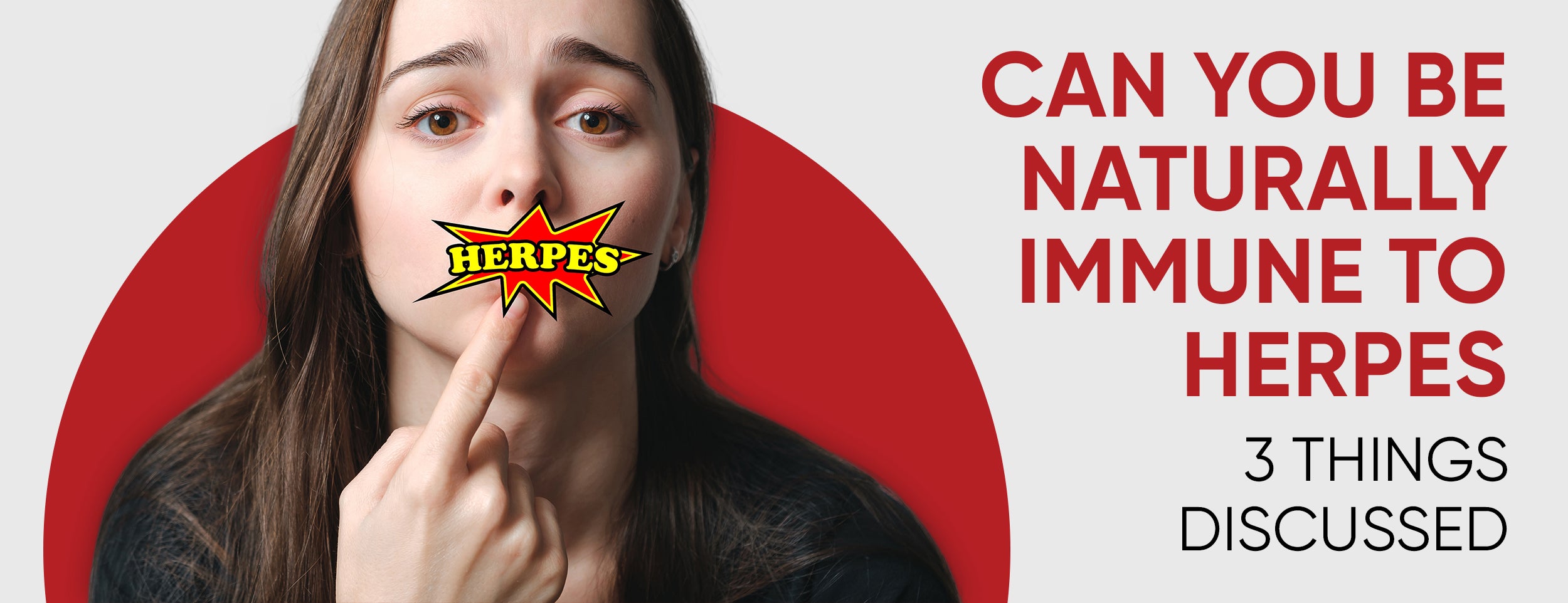Natural immunity develops in the body after recovering from COVID-19 without vaccination. Studies show it can last 6-8 months, but it's unclear if it offers lifelong protection. Research suggests natural immunity is comparable to vaccine-induced immunity, but vaccination can further enhance protection.
Natural immunity refers to developing immunity to a pathogen, such as SARS-CoV-2 (the virus that causes COVID-19), following exposure to the pathogen. This occurs when the immune system produces antibodies that recognize and neutralize the pathogen.
In this blog post, we will explore the concept of natural immunity in the context of COVID-19, its significance in managing the ongoing pandemic, and the latest research on its effectiveness and duration.
Covid Natural Immunity: 5 Facts

Natural immunity, in particular, is a topic that has gained much attention from scientists, healthcare professionals, and the public alike. If you are wondering what natural immunity is and how it relates to COVID-19, you have come to the right place. We will delve into the topic of natural immunity and provide you with all the critical information you need.
COVID-19 and Natural Immunity
Natural immunity refers to the body's innate ability to resist certain infections, including COVID-19. This immunity develops over time as a result of exposure to the virus. When a virus enters the body, the immune system produces antibodies and T-cells to recognize and attack it.
These antibodies and T-cells can neutralize the virus or prevent its replication, thereby preventing infection. Some of the primary components of natural immunity include:
- Physical barriers include the skin, hair, and mucous membranes that serve as the body's first line of defense against viruses and bacteria.
- Innate immune system: This system includes various types of cells, such as phagocytes and natural killer cells, that can quickly recognize and attack pathogens.
- Adaptive immune system: This system includes T-cells and B-cells, which produce specific antibodies that recognize and neutralize viruses. These cells also create a memory of the virus, enabling the body to respond more quickly if exposed to it again.
Natural immunity is different from vaccine-induced immunity, which is acquired through vaccination. While both forms of immunity can protect against COVID-19 and other viruses, there are some key differences to remember. For instance:
- Natural immunity may not provide complete protection against all virus strains, whereas vaccines are designed to provide immunity against specific strains.
- Natural immunity may vary in duration, whereas vaccines are developed to provide long-lasting immunity.

Duration of Natural Immunity to COVID-19
The duration and strength of COVID-19 natural immunity can vary among different individuals. Some people may develop robust immunity that lasts for several months or even years, while others may have weaker immunity that wanes more quickly. Several factors can influence the strength and duration of natural immunity, such as:
- Age: Older adults may have weaker natural immunity compared to younger people.
- Genetics: Some individuals may have variations in their genes that affect their immune response to the virus.
- Exposure to the virus: The more direction someone has to the virus, the stronger their immune response may be.
- The severity of the infection: Individuals with severe COVID-19 may have stronger immunity than those with mild or asymptomatic infection.
COVID-19 Immunity Testing
COVID-19 natural immunity testing is a complex process. Several methods exist, and each carries its benefits and limitations. Some of the available methods include:
- Antibody tests: These tests detect the presence of antibodies in an individual's blood, which are produced in response to an infection. The benefits of this testing method are that it is non-invasive and provides quick results. However, it has its limitations since different antibody types can be present in the blood, making it difficult to ascertain if the detected antibodies are specific to COVID-19.
- T-cell: Tests measure the presence of T-cells, which are white blood cells that form part of the immune system's response against the virus. One advantage of this testing method is that it provides a broader understanding of the immune response. However, like the antibody tests, it is difficult to tell if the T-cells are specific to COVID-19.
- Viral testing: This is a test that detects the presence of the virus itself in an individual's respiratory tract. It is the most effective method of diagnosing the acute phase of infection. However, it does not provide information on an individual's natural immunity status.
The Impact of Omicron Variant on Natural Immunity

The emergence of the Omicron variant has sparked concerns about the effectiveness of natural immunity. Research on the variant's impact on innate immunity is limited, but some observations can be made:
- Omicron's unique mutations may reduce the binding ability of antibodies that target the virus. Thus, individuals with previous COVID-19 infections may have less protection against Omicron.
- The rapid spread of Omicron may lead to more people contracting the virus, increasing the number of individuals who develop natural immunity.
- Continued research on the role of natural immunity in emerging variants is crucial in helping to develop effective strategies for pandemic management.
Prevalence Of Natural Immunity In The Population
Natural immunity is the body's ability to fight an infectious disease without medical intervention. Research suggests that people who have recovered from COVID-19 may have developed natural immunity that could protect them from future infections. But what proportion of the population has been infected with COVID-19 and, therefore, may have innate immunity? Here are some key insights:
- According to a study published in January 2021 in the Journal of the American Medical Association, about 10% of people in the United States had been infected with COVID-19 by the end of 2020.
- Notably, the proportion of the population with natural immunity is likely higher than the number of confirmed cases. This is because many people infected with COVID-19 never develop symptoms and may not seek testing.
- It is believed that natural immunity may last longer than immunity acquired through vaccination. This means survivors of COVID-19 may have longer-lasting protection against future infections than those who have only been vaccinated.
Natural Immunity Prevalence And Vaccination Campaigns
Herd immunity is when a large part of the population becomes immune to a disease through vaccination or natural infection. When enough people are protected, it hinders the spread, even among non-immune people. Innate immunity prevalence is crucial for achieving herd immunity and guiding vaccination efforts. Key points to consider:
- If only a tiny population has developed natural immunity to COVID-19, herd immunity may prove developed natural immunity. Achieving herd immunity through natural infection may be more challenging. This is because the virus can continue to spread among those who are not immune.
- Vaccination campaigns help increase immune protection, which facilitates the achievement of herd immunity.
- It's important to note that not everyone may be eligible for vaccination due to factors such as age, underlying health conditions, or allergies. This means that natural immunity may still protect the population from COVID-19.

Estimating Natural Immunity Prevalence
Estimating natural immunity prevalence has proven complex, with several challenges to consider. Here are some of the main issues:
- Most COVID-19-infected individuals do not develop symptoms and do not seek treatment. This means that the number of confirmed cases may need to accurately reflect the valid number of infections, affecting the estimates of natural immunity prevalence.
- There is still much to learn about natural immunity against COVID-19. This means that estimates may change over time as new research emerges.
- Natural immunity may be affected by factors such as age, health status, and viral variants, among other factors. This makes it challenging to generalize estimates across populations.
Conclusion
COVID-19 natural immunity is a complex and evolving topic that remains important amidst the ongoing pandemic. With the emergence of new variants and the continued need for effective measures to control the spread of the virus, understanding natural immunity is crucial in determining the best course of action for individuals and society.
While natural immunity offers potential benefits such as long-lasting protection, weighing these against the risks and challenges associated with relying on innate immunity alone is essential. Ultimately, a comprehensive approach that includes vaccinations, continued research and development, and ongoing public health measures will be vital in achieving control over the COVID-19 pandemic and safeguarding the health and well-being of individuals globally.
















![Natural Ways to Boost Immunity [ Essential]](http://drnumb.com/cdn/shop/articles/How_to_Naturally_Boost_Immune_System__8_Tips_Essential.jpg?v=1706068514)



